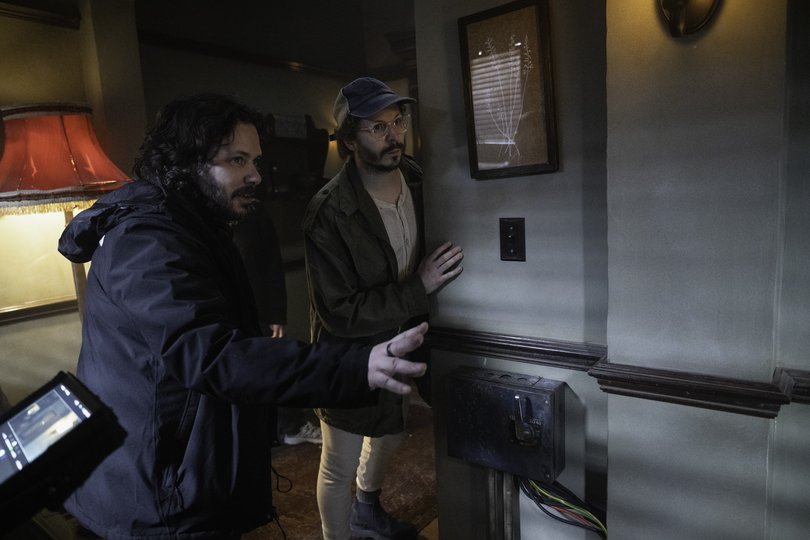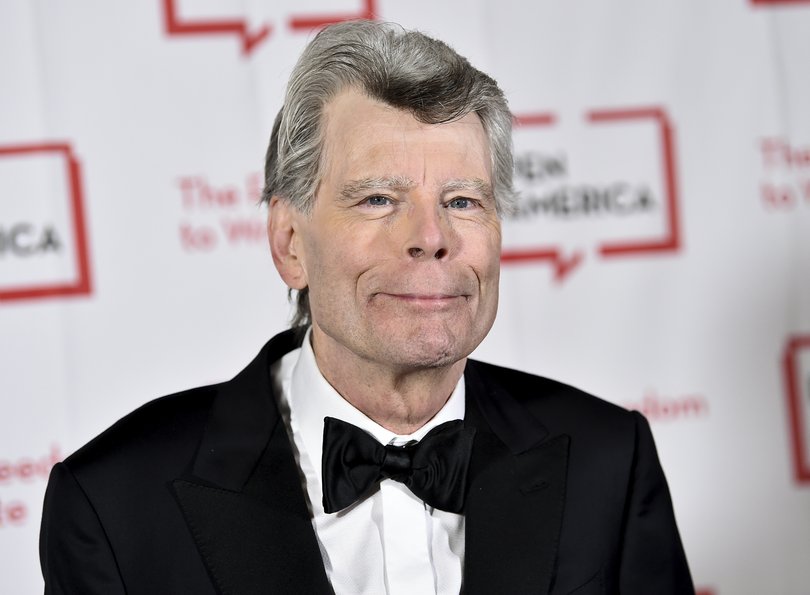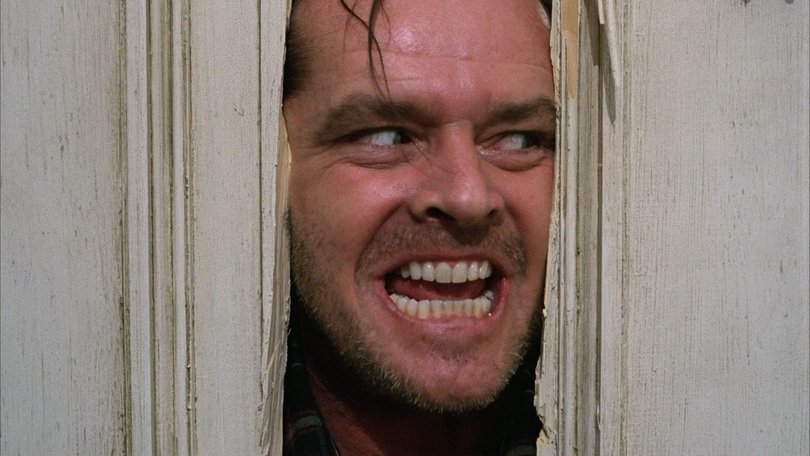The Running Man has Stephen King’s tick of approval, which puts Edgar Wright above Stanley Kubrick
Stephen King famously hated Stanley Kubrick’s version of The Shining, and he definitely didn’t care for the 1987 version of The Running Man. He’s singing from a different song sheet for Edgar Wright.

As a teenager, British filmmaker Edgar Wright read the novel The Running Man, written by Richard Bachman.
Published in 1982, the book was set in 2025, a dystopian future in which a young man named Ben Richards, poor, desperate and unable to afford healthcare for his daughter, agrees to go on an extreme TV show in which he is viciously hunted for 30 days. If he survives, he wins a billion dollars.
It was a powerful parable about capitalism, entertainment and mankind’s capacity to repress its humanity. Five years later, the book was made into a film starring Arnold Schwarzenegger.
Sign up to The Nightly's newsletters.
Get the first look at the digital newspaper, curated daily stories and breaking headlines delivered to your inbox.
By continuing you agree to our Terms and Privacy Policy.Wright (Hot Fuzz, Baby Driver) read the novel before he saw the 1987 movie, and as a kid, he already visualised how it could be turned into a film about, in his words, “the world’s deadliest game of hide and seek”.
Wright’s version of the film will be released in four weeks (a new trailer dropped today), starring Glen Powell as Ben Richards, with a supporting cast including Josh Brolin, Colman Domingo, Michael Cera and Lee Pace.
For fans of Wright’s energetic and splashy style, clips and teasers have promised a high-octane action thriller with a sense of humour. But there was one viewer he really had to impress, and that was Stephen King.
Bachman, you see, was one of King’s pen-names (the other was John Swithen), and he used it for seven books including The Running Man.

Speaking via video-link at SXSW Sydney, Wright revealed he had been in email contact with King for a number of years, but only met him in person the day before.
“He’s always been a supporter of my films, right back to Shaun of the Dead,” Wright said.
“We went up to Maine to meet him, which, as somebody who has read his books since I was in my early teens was pretty amazing.”
Wright said there was a period of time in which he couldn’t talk to King about the adaptation on the off chance it would fall through. “I would have found it too heartbreaking to get in touch and then have the whole thing fall apart,” he said.
Wright said there were changes between the book and his film, but it’s still faithful to what he read all those decades ago. More importantly, it has the stamp of approval from King.
“Stephen has seen the film, and I can say he really loves it,” Wright revealed. “He said it’s faithful enough to the book to keep the fans happy, but different enough to ‘keep me on my toes’.”
Don’t just take Wright’s word for it. King overnight posted on social media his endorsement in line with the release of the new trailer. He wrote, “BTW, I’ve seen it and it’s fantastic. Die Hard for our time. A bipartisan thrill ride.”

King hasn’t always been effusive with praise for every adaptation of his works but considering how prolific he is, it would be hard to love everything.
He has personally been involved in some, such as the 1989 version of Pet Semetary, writing the screenplay and appearing onscreen as an actor, and most recently, the streaming series Lisey’s Story starring Julianne Moore, for which King wrote all eight episodes.
But most of them, he just collects the royalty cheques, whether it’s Carrie, It and Misery or the not so horror-toned The Shawshank Redemption, The Life of Chuck and The Long Walk. There have been 47 movies and almost as many TV shows.
Wright already has one leg up on the 1987 version of The Running Man, which King did not care for. He actually demanded his name be taken off the marketing materials for film, and the studio, TriStar Pictures, relented.
His beef was with the many changes made from the original novel, including its tone and the casting of Schwarzenegger, who was far from the “everyman” Ben Richards.

It wasn’t the first time he wanted his name disassociated from a project. He sued to have his name taken off the 1992 The Lawnmower Man, which was to be released as Stephen King’s The Lawnmower Man. The movie had wildly deviated from the novel.
He wasn’t keen on Christine, and he called the 1984 version of Firestarter “cafeteria mashed potatoes”. Even the world’s biggest fan of starch knows that wasn’t a compliment.
The most famous of King’s agitation with an adaptation was also one of the most renowned horror classics of cinematic history, Stanley Kubrick’s The Shining.
King called the film, “A great big beautiful Cadillac with no motor inside. You can sit in it, and you can enjoy the smell of the leather upholstery – the only thing you can’t do is drive it anywhere”.
He variously damned it as “a maddening, perverse and disappointing film”, “totally empty and totally flat” and “a failure”. He objected to Kubrick’s choice to have Jack Torrance (Jack Nicholson) seem mad from the start, thus denying the character an arc, labelled the characterisation of Wendy as “misogynistic” and said the film had no heart.
King would go on to write his own screen version of The Shining, a 1997 TV miniseries.
For that to eventuate, King and his producers had to wrest the rights for it out of Kubrick. Kubrick agreed, as long as King stopped trashing his film, or, alternatively, pay $1.5 million for it. King paid up rather than stay silent.

